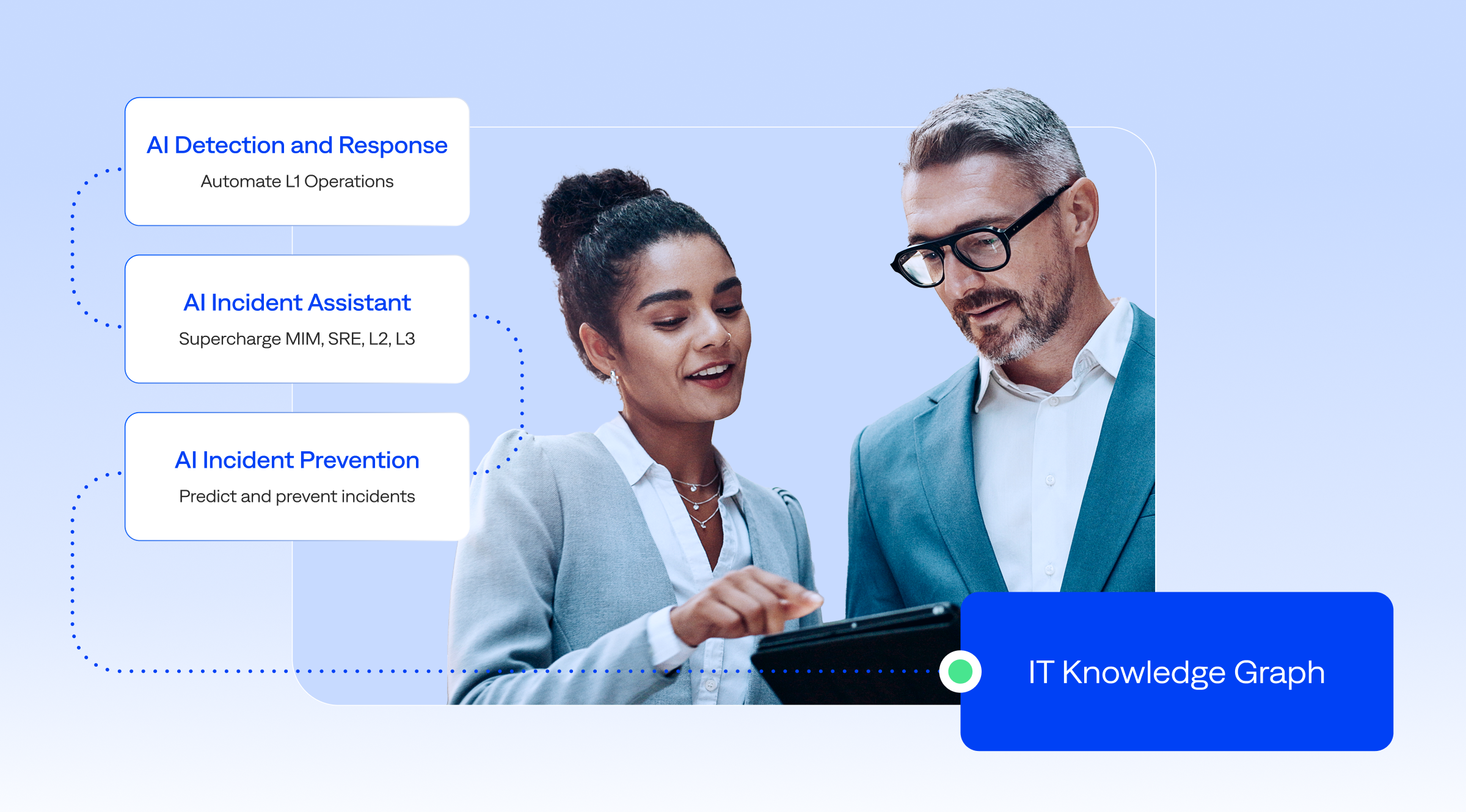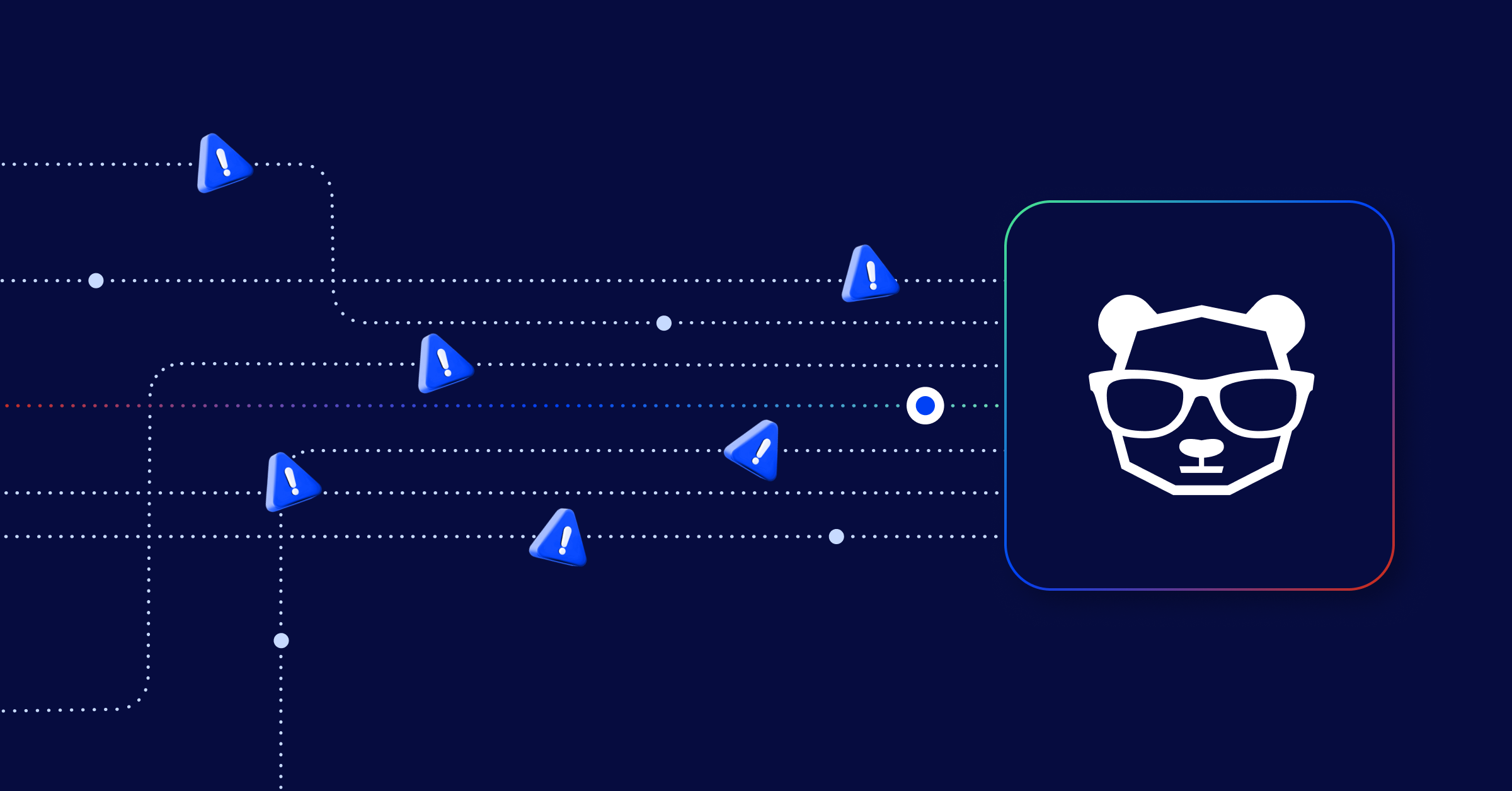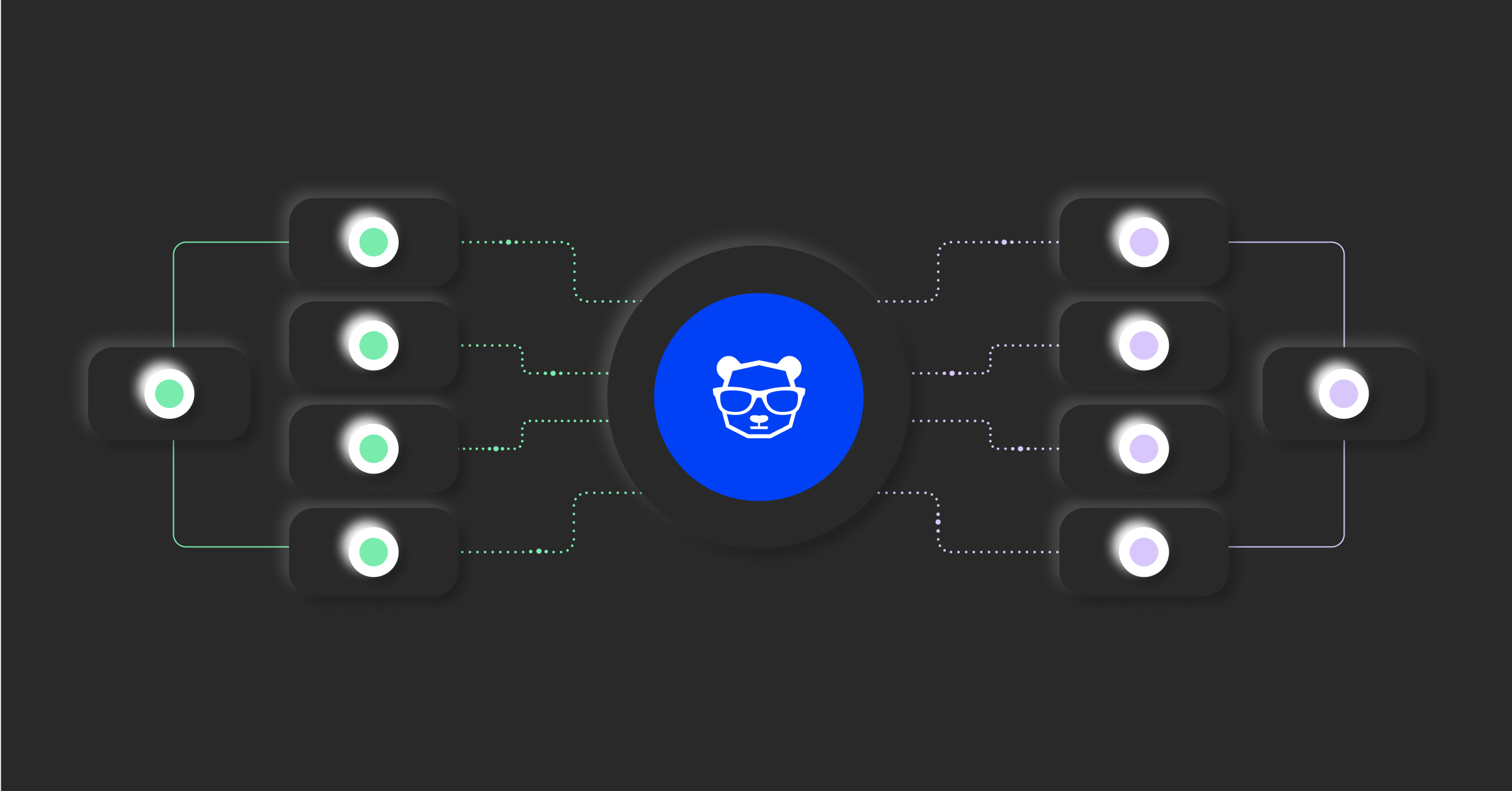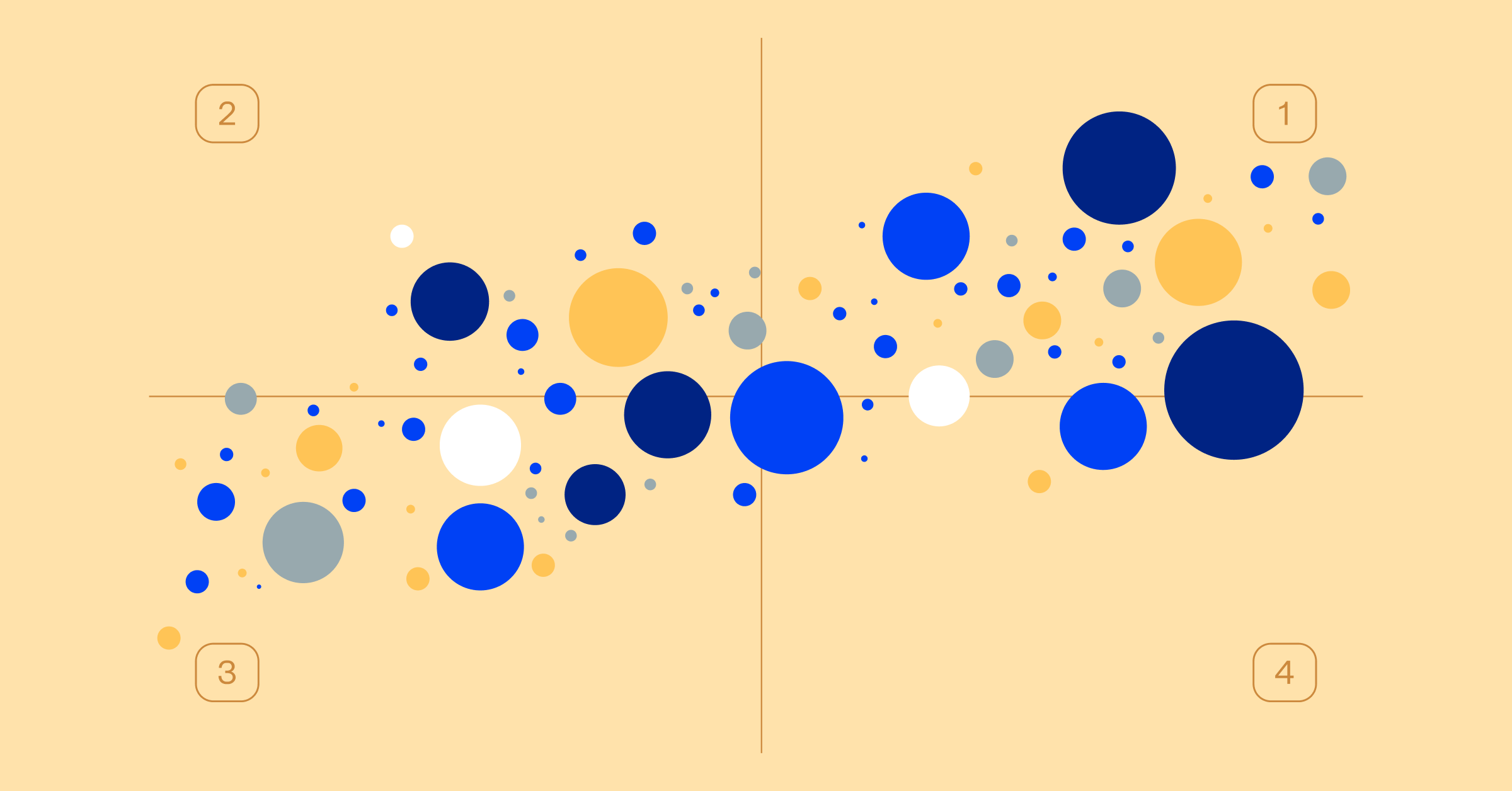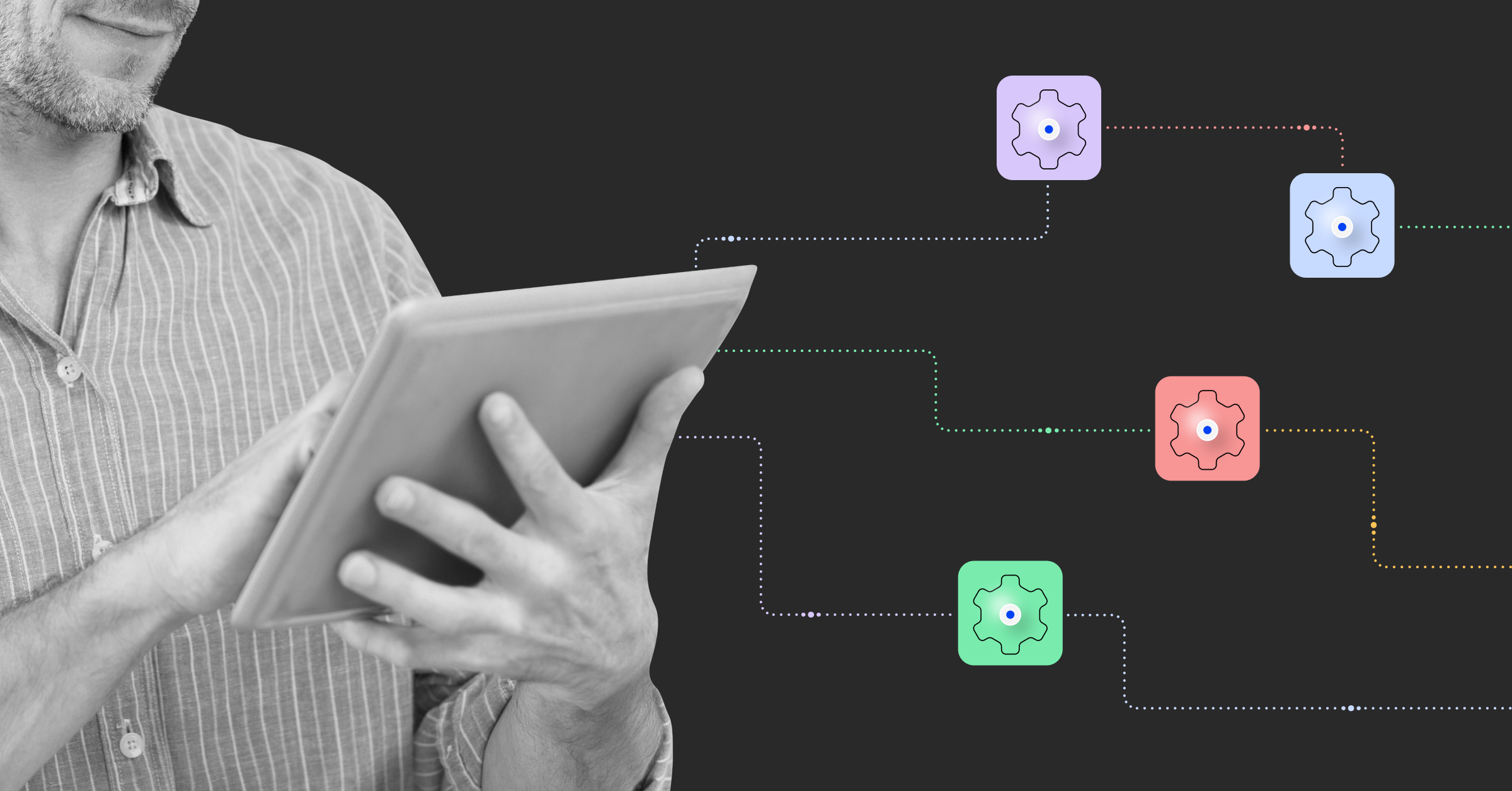Automated L1 detection and response
Boost L1 team productivity by automating detection, triage, and response, and providing AI-driven insights and guided actions for responders.

Proactive identification and informed response
BigPanda uses AI to automatically provide insights, cross-domain visibility, and next steps for your L1 teams, enabling them to identify, contextualize, and resolve incidents faster.
Detect incidents proactively
Automate the detection and correlation of critical signals to reduce the time it takes your L1 teams to identify and understand emerging incidents.


Streamline L1 workflows
AI agents automate manual tasks by gathering and analyzing relevant data and knowledge from various sources, enabling your L1 teams to triage with confidence.
Lower operational costs
Eliminate duplicate L1 workflows and reduce your managed service provider (MSP) spend with unified, real-time visibility into top-priority issues and their business impact.
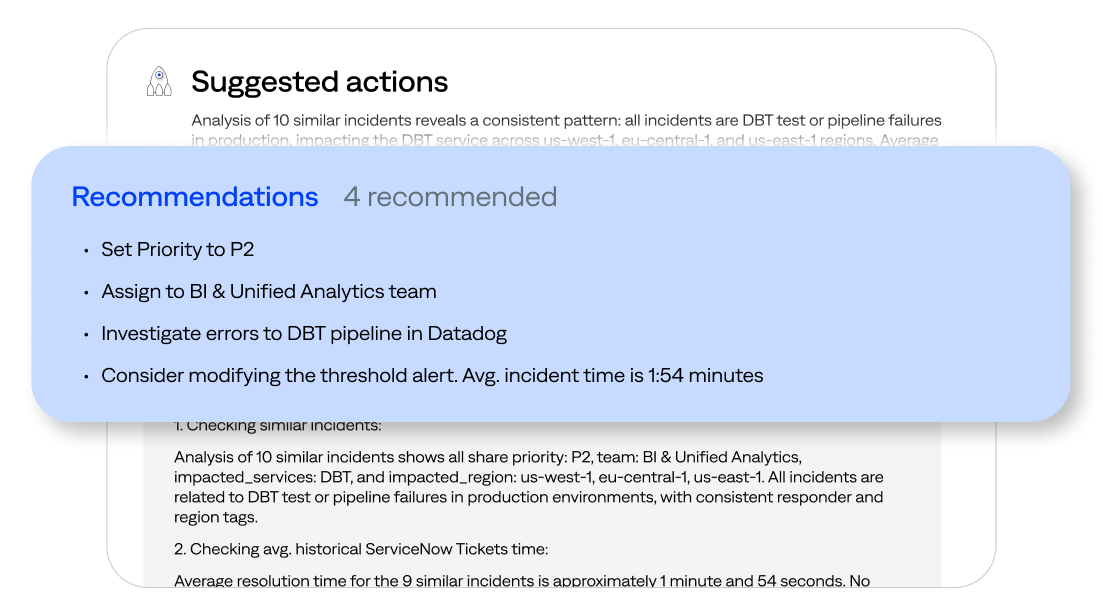
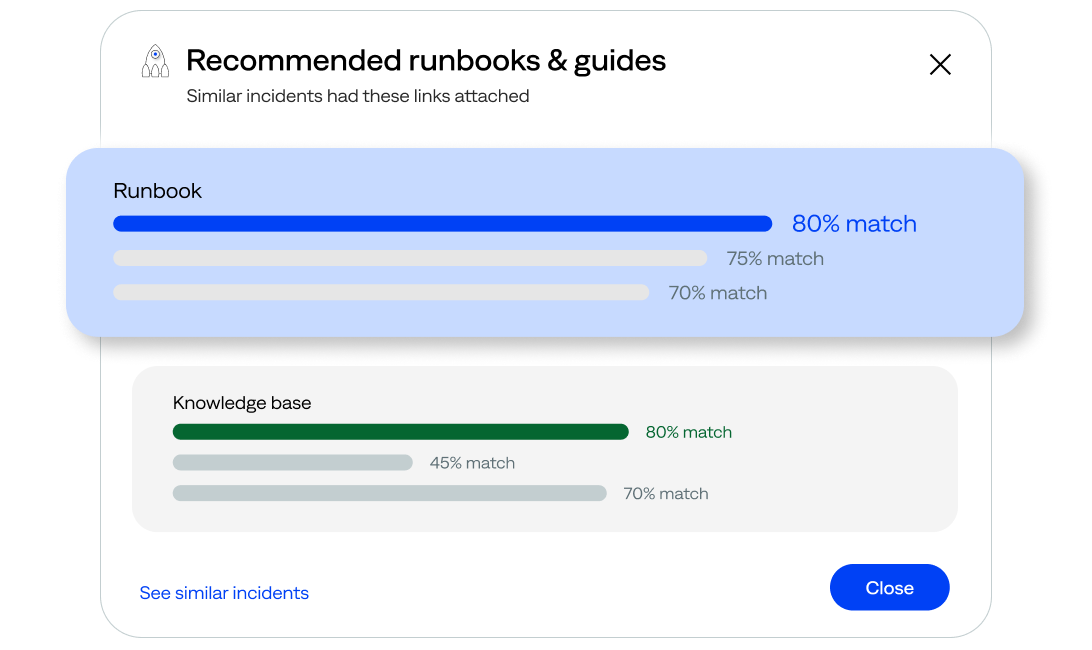
Improve customer service
Gain visibility into incidents that impact your customers and automate your triage actions, such as executing runbooks and knowledge base articles, so your L1 teams can resolve or escalate incidents faster and limit end-user impact.
“With the help of BigPanda, we reduced incidents by 69% and significantly improved IT operational efficiency.”
Samy Senthivel
Director of Observability Services, Autodesk
“With BigPanda, we are now taking advantage of machine learning automation and artificial intelligence to further decrease the mean time to identify an incident. We have reached a service availability of 99.8%, which is the best on record at IHG for our internal systems.”
Alvin Smith
Vice President of Global Infrastructure and Operations, InterContinental Hotels Group (IHG)
“AI Incident Assistant speeds up MTTR and enhances mean time to knowledge, allowing a deeper understanding of impacts based on historical data and streamlining communication between teams.”
Steve Liegl
Director of Infrastructure and Operations, WEC
FAQ
What types of data does automated detection and response analyze?
The BigPanda agentic ITOps platform ingests and analyzes your real-time and historical data to detect incidents and recommend or automate responses. This includes metrics, logs, traces, and events from your monitoring and observability tools (like application performance monitoring, infrastructure monitoring, and network monitoring), service desk tickets, configuration management databases (CMDBs), change management systems, knowledge base articles, and external observability sources. By correlating these diverse data points, BigPanda gains a comprehensive understanding of your IT environment and can autonomously identify and respond to incidents more effectively. Learn more about BigPanda integrations.
Does BigPanda AI learn and adapt?
BigPanda AI Detection and Response orchestrates AI agents across various domains and data sources to surface relevant information, enabling your L1 teams to quickly validate and triage incidents. Agents recommend or automate remediation based on incident context, leveraging your institutional and informal knowledge, even if it’s undocumented.
How does BigPanda automate response for L1 teams?
BigPanda AI Detection and Response eliminates guesswork and empowers your L1 teams to resolve incidents confidently with suggested and automated remediation enriched by institutional and informal knowledge, even when it’s undocumented. When escalation is required, BigPanda automatically assigns and equips your L2 teams with complete incident context.
Check out more related content
ANALYST REPORT
Gartner® Market Guide for Event Intelligence Solutions, 2025

